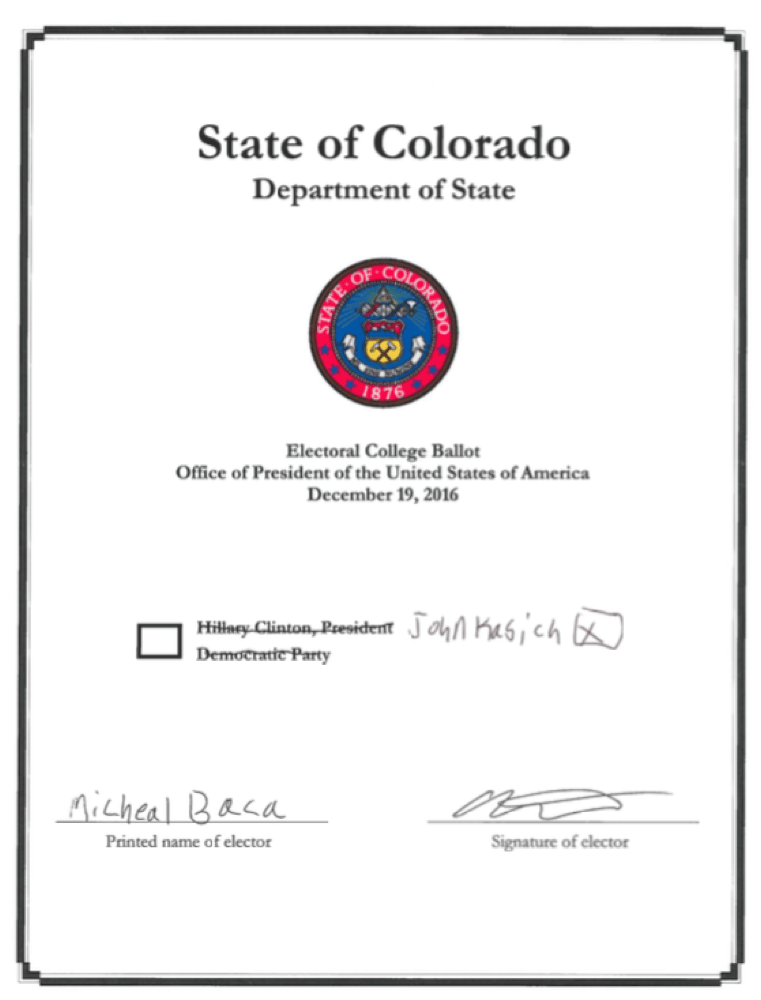Micheal Baca, the Colorado elector who refused to cast a vote for Hillary Clinton, has been formally referred to the Colorado Attorney General's Office for investigation.
Baca, like the other eight electors, took an oath in which he promised to vote for the candidates for president and vice president who got the most votes in Colorado.

This was new language that the Secretary of State's Office added to the oath to make it harder for the electors to find any wiggle room in promising to "faithfully perform the duties of the office," and it was the subject of last-minute legal wrangling.
And to further encourage the electors to vote for Hillary Clinton for president, they were given ballots that helpfully had her name already written in. Baca crossed out Clinton's name and wrote in the name of Ohio Gov. John Kasich, who was an unsuccessful Republican candidate for president.

Baca was removed as an elector and replaced with Celeste Landry. His vote was not counted. It was a tense and dramatic scene in the lobby of the state capitol Monday that saw Baca hailed as a hero and shouts for Secretary of State Wayne Williams to be recalled.

This was all part of a long-shot -- and of course, unsuccessful -- effort to persuade Republican electors to choose another Republican instead of Donald Trump for president. The goal was to get 37 Republicans to defect, prevent Trump from getting the 270 electoral votes he needed and throw the election to the U.S. House of Representatives. In the end, just two Republican electors defected.
Williams had said he would refer any electors who violated their oath for prosecution on potential perjury and election code violation charges.
And on Wednesday, his office announced they had done just that. It's up to Attorney General Cynthia Coffman to decide whether to file charges.
In addition to the issues raised by the oath of office, Colorado law states, "Each presidential elector shall vote for the presidential candidate and, by separate ballot, vice presidential candidate who received the highest number of votes at the preceding general election in this state."
Reached by phone, Baca said he wasn't prepared to comment at this time. Jason Wesoky, an attorney who represented two other electors, former state senator Polly Baca and math teacher Robert Nemanich, in an effort to get the federal courts to block enforcement of Colorado law, said he would not comment on an ongoing criminal case.
Jesse Witt, the attorney who represented Nemanich and Polly Baca in the related Denver District Court case, had earlier suggested that electors charged for voting the "wrong" way might mount a First Amendment defense.
The underlying question of whether Colorado's statute that binds electors to the popular vote result -- a law that 28 other states have -- is constitutional could still be litigated.












